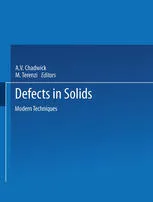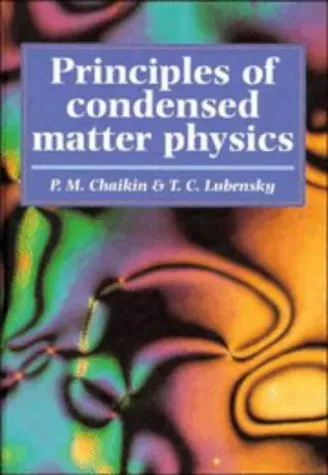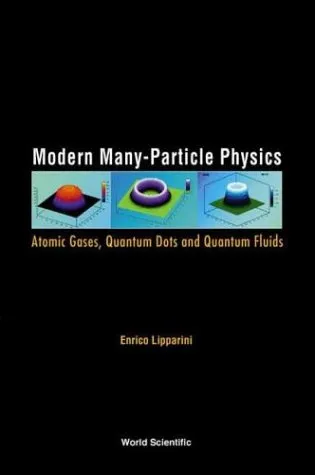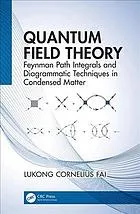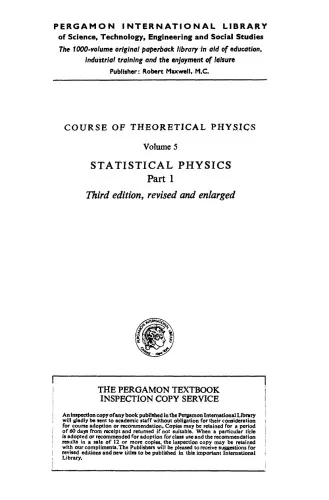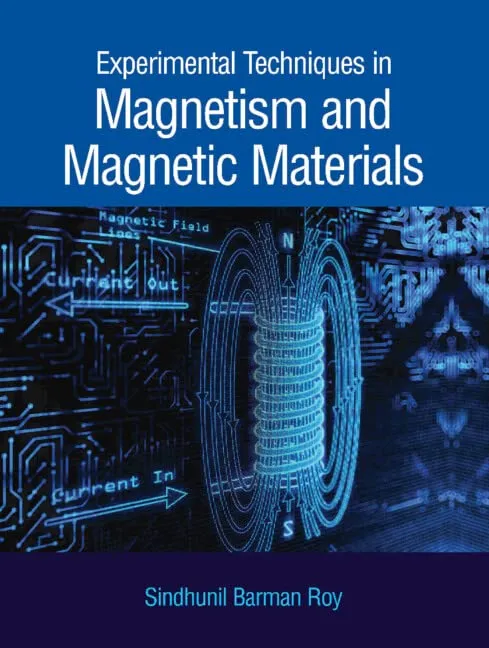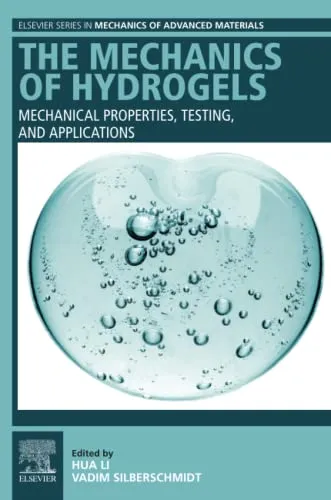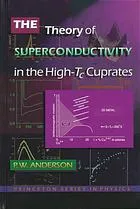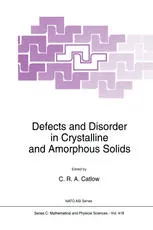Defects in Solids: Modern Techniques
4.8
Reviews from our users

You Can Ask your questions from this book's AI after Login
Each download or ask from book AI costs 2 points. To earn more free points, please visit the Points Guide Page and complete some valuable actions.Related Refrences:
Introduction to Defects in Solids: Modern Techniques
Welcome to Defects in Solids: Modern Techniques, an authoritative guide tailored for researchers, students, and scientists interested in one of the most intricate subjects in materials science—defects in solids. This book provides an in-depth exploration of the methods and principles used to study, measure, and analyze structural imperfections in crystalline and non-crystalline materials. Authored and edited by experts in the field, it combines theoretical insights with contemporary experimental methodologies to present a complete perspective on the science and characterization of solid-state defects.
Defects in solids impact the physical, mechanical, optical, and electronic properties of materials. From industrial applications such as semiconductor device optimization to groundbreaking research in emerging fields like quantum computing, understanding defects is pivotal. This book not only outlines these complexities but offers readers the tools to investigate them using modern techniques. Whether you are a seasoned professional or a curious learner, this work delivers a comprehensive framework from the basics to advanced methodologies.
Detailed Summary of the Book
At its core, the book delves into various types of materials defects—including point defects, dislocations, grain boundaries, and interface structures—outlining their role in material properties and stability. It methodically introduces advanced experimental techniques such as spectroscopy, diffraction, microscopy, and computational methods, which are critical for defect analysis. The chapters are written in a manner that bridges theory with practice, enabling readers to implement these methods in their research or professional endeavors.
Key topics include:
- The nature and classification of defects, ranging from vacancies and interstitials to dislocations and extended defects.
- Cutting-edge experimental techniques, including Transmission Electron Microscopy (TEM), X-Ray Diffraction (XRD), and Scanning Probe Microscopy (SPM).
- Theoretical models that describe defect behavior, supported by practical computational tools such as Density Functional Theory (DFT).
- How defects influence material conductivity, strength, and degradation, with insights into real-world applications.
The authors have also included illustrative case studies and detailed step-by-step explanations of techniques, making the text accessible and detailed for readers across disciplines.
Key Takeaways
- Comprehensive understanding of the role and impact of defects in a variety of solid-state systems.
- Exposure to advanced techniques used to investigate and characterize defects, with practical guidance on their application.
- Insights into the current trends and challenges in defect analysis and their implications for materials science research.
- The importance of integrating theoretical models with experimental data to address materials challenges in real-world scenarios.
Famous Quotes from the Book
"The study of defects in solids is not merely about understanding imperfections—it is about unlocking the design principles for perfect functionality."
"Every defect, no matter how minute, leaves a trace in the behavior of a material. It is in these traces that the true nature of solids unfolds."
Why This Book Matters
Understanding defects in solids transcends scientific curiosity—it lies at the heart of technological advancement. This book matters because it provides the foundation for innovation in materials design, from developing stronger structural materials to creating more efficient semiconductors and energy systems. The integration of theory and modern techniques in this text ensures that researchers possess the necessary tools to uncover new material properties and optimize existing ones.
Furthermore, the book's interdisciplinary approach fosters a collaborative understanding of defect analysis, providing chemists, physicists, and engineers with a unified framework for addressing some of the most pressing challenges in material science.
Whether you are pioneering discoveries or refining methodologies, Defects in Solids: Modern Techniques serves as an essential guide to navigating the intricate world of material imperfections.
Free Direct Download
You Can Download this book after Login
Accessing books through legal platforms and public libraries not only supports the rights of authors and publishers but also contributes to the sustainability of reading culture. Before downloading, please take a moment to consider these options.
Find this book on other platforms:
WorldCat helps you find books in libraries worldwide.
See ratings, reviews, and discussions on Goodreads.
Find and buy rare or used books on AbeBooks.
1224
بازدید4.8
امتیاز0
نظر98%
رضایتReviews:
4.8
Based on 0 users review
Questions & Answers
Ask questions about this book or help others by answering
No questions yet. Be the first to ask!
